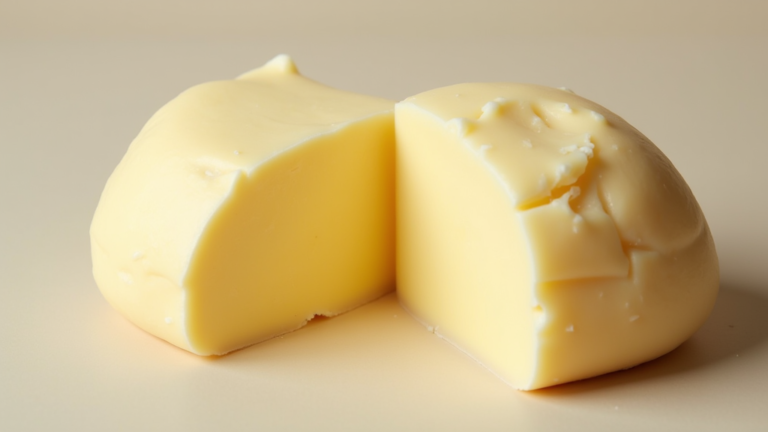Beef tallow and coconut oil have been topics of discussion among those who care about natural skincare. Both offer unique properties that may come in handy when looking for alternatives to conventional creams and lotions. In this article, I compare the two ingredients and discuss which one might better meet your skincare needs.
Overview of the Ingredients
What is Beef Tallow?
Beef tallow is a rendered fat obtained mainly from cattle. Traditionally used in cooking, it has found its way into skincare because of its natural fatty acids that work to support skin barrier functions. Although it might sound old fashioned, beef tallow contains vitamins and essential nutrients that can be quite beneficial for skin hydration.
This ingredient has been used in various natural remedies for many years. Some people find that it helps save their dry skin and maintain a smooth, supple appearance. Its texture can offer a protective layer, which may aid in locking moisture into your skin. Additionally, careful processing of beef tallow helps retain antioxidants that fight free radicals.
Who Might Benefit from Beef Tallow?
- People with very dry or cracked skin.
- Those looking for a natural, animal-based moisturizer.
- Users who appreciate traditional remedies passed down through generations.
Pros and Cons of Beef Tallow
Pros:
- Rich in nutrients and fatty acids.
- Creates a natural barrier to lock in moisture.
- Has a long history of traditional use in skincare practices.
Cons:
- May not appeal to those preferring plant-based products.
- Its scent and texture might require a period of adjustment.
- Availability can sometimes be limited compared to popular oils.
What is Coconut Oil?
Coconut oil comes from the fruit of the coconut palm and is well known for its versatility in both food and beauty products. It is celebrated for its rich content of medium-chain fatty acids. These molecules are often linked with improved moisture levels and anti-inflammatory properties that can support skin repair and overall health.
Coconut oil has been widely popular in natural cosmetic products. Its smooth texture makes it easy to apply, and many people use it as a base for homemade lotions or as a standalone moisturizer. Whether your skin is prone to dryness or you are looking for a light, non-greasy feel, coconut oil is appreciated for its gentle benefits.
Who Might Benefit from Coconut Oil?
- Users looking for a plant-based moisturizing option.
- Individuals dealing with mild skin irritation or inflammation.
- Those interested in multi-purpose ingredients for both food and skincare.
Pros and Cons of Coconut Oil
Pros:
- Widely available and easy to use.
- Contains a good amount of antioxidants and vitamins.
- Provides light hydration without a heavy feel.
Cons:
- Can clog pores for some skin types.
- May cause irritation for those with particularly sensitive skin.
- Its comedogenic nature may not suit acne-prone skin.
Key Feature Comparisons
- Moisture and Hydration
Why It Matters: Keeping skin hydrated is a primary goal for any skincare regimen. A well-hydrated skin barrier helps protect against external irritants and retains a healthy glow.
Beef Tallow: The natural fatty acids in beef tallow create a barrier that seals in moisture, which is particularly effective for very dry or chapped skin. Its composition closely resembles some of the lipids present in human skin.
Coconut Oil: Coconut oil absorbs relatively quickly and provides a light layer of hydration. This oil works well if you are looking for something that nourishes without feeling too heavy.
Winner: Beef tallow may have the edge for those with extremely dry skin due to its ability to lock in moisture over longer periods. - Nutrient and Antioxidant Content
Why It Matters: Vitamins and nutrients can assist in skin repair and reduce damage from free radicals. These components are key for maintaining youthful and healthy skin.
Beef Tallow: Contains vitamins A, D, E, and K, which help in skin repair. The antioxidants present help reduce oxidative stress on the skin.
Coconut Oil: Rich in vitamin E and other antioxidants, coconut oil supports the skin’s natural defenses against environmental harm. Its anti-inflammatory properties add extra benefits.
Winner: Both ingredients perform well, but beef tallow might have a slight advantage when it comes to matching the natural lipid profile of the skin. - Suitability for Different Skin Types
Why It Matters: A quality skincare product should be adaptable for various skin types without causing blockages or irritation.
Beef Tallow: Typically appreciated by people with dry and mature skin. Its richness can be too dense for oily or acne-prone skin unless used sparingly.
Coconut Oil: Better suited for those with normal to dry skin and can be beneficial for mild inflammatory conditions. However, it may clog pores in acne-prone users.
Winner: It ultimately depends on your skin type. For sensitive or oily skin, coconut oil requires cautious application, whereas beef tallow is more appropriate for mature or extremely dry skin. - Price and Accessibility
Why It Matters: Cost and availability influence daily skincare routines. Products that are easy to find and affordable tend to be more sustainable over time.
Beef Tallow: Often produced in smaller batches by specialized suppliers. Its natural source may result in higher costs, though many users find its benefits worth the price paid.
Coconut Oil: Widely available and typically more affordable than animal-based products, making it accessible in most grocery stores and pharmacies.
Winner: Coconut oil generally wins in terms of price and accessibility, making it a popular choice for everyday skincare use. - Application and Feel on the Skin
Why It Matters: How a skincare product feels upon application can affect your overall routine and satisfaction. A product should feel pleasant and neither greasy nor overly heavy.
Beef Tallow: Has a thicker texture and might feel heavier. For those accustomed to rich, emollient formulations, it provides a long-lasting boost of moisture. However, only a small amount is usually necessary for effective use.
Coconut Oil: Offers a lighter and more quickly absorbed feel, making it suitable for daytime use without interfering with makeup or daily activities.
Winner: Coconut oil is ideal for individuals preferring a lighter feel, while beef tallow is an excellent choice for nighttime or as an intensive treatment option.
User Reviews and Experiences
One of the reasons many people begin exploring natural ingredients is to avoid harsh chemicals found in some commercial products. Users who have tried beef tallow in their skincare routines often mention its ability to create a stable moisture barrier that feels nurturing on the skin’s surface. Reviews indicate that while the scent can be distinct, it is generally well tolerated by those who prefer a natural approach.
On the other hand, coconut oil is a favorite among many for its versatility and light texture. Users appreciate that it serves not only as a moisturizer but also as a makeup remover and even a gentle cleanser. Some reviews note that coconut oil can feel a bit too slick for daytime use and might clog pores in individuals with acne-prone skin.
Both ingredients have received positive feedback in various online forums and blogs devoted to natural beauty. Overall, while both beef tallow and coconut oil excel in different areas, personal skin type and individual preference largely determine which is better suited to your skincare routine.
Final Verdict: Which One Is Better for Your Skin?
Choosing between beef tallow and coconut oil really depends on your skin’s needs and your personal philosophy when it comes to natural cosmetics. If your skin is very dry or mature, beef tallow’s rich blend of fatty acids and vitamins might offer the intensive nourishment you require. It works well as a night cream or as a treatment for particularly rough areas by providing a long-lasting barrier that locks in moisture.
Meanwhile, if you prefer a product that is lighter and versatile enough for daily use, coconut oil remains a dependable option. Its widespread availability and affordability make it a great starting point for those new to natural skincare. Still, if you have sensitive or acne-prone skin, you should test coconut oil first using small amounts to avoid potential pore congestion.
Your choice comes down to what feels best on your skin. For those who enjoy robust, traditional ingredients that mirror the natural components of skin lipids, beef tallow might be worth considering. Conversely, if you lean toward plant-based, multi-use oils that are easy to incorporate into your everyday regimen, coconut oil could be a better match.
Additional Considerations
There are a few extra points to bear in mind when choosing between these natural ingredients. Your skin’s reaction to any product can vary based on environmental factors and other elements in your skincare routine. For example, if you already use strong actives or exfoliating agents, a milder natural product might be preferable. It is very important to choose high-quality ingredients: make sure beef tallow comes from grass-fed sources and that your coconut oil is virgin and unrefined to maintain its natural benefits.
Experimenting with sample sizes or mixing natural ingredients to create personalized formulations can also be a fun way to find the optimal balance. Many enthusiasts mix a small amount of coconut oil with essential oils or beeswax to craft a custom moisturizer. Others might combine beef tallow with botanical extracts or a touch of vitamin E to amplify its skin-nourishing properties. This process of trial and error can provide you with a tailored solution that meets your unique skincare needs.
Additional Scientific Insight
Let’s dive in and take a closer look at the science behind using natural fats and oils for skincare. Researchers have found that natural fats like beef tallow and coconut oil closely resemble the lipid layers found in human skin. This similarity helps these ingredients support skin barrier repair and retention of moisture. In particular, the fatty acids present in both oils can significantly improve the skin’s resistance to environmental stressors, such as pollution and harsh weather conditions.
Studies suggest that applying these natural ingredients may help calm inflamed skin and promote faster healing of minor abrasions. The antioxidants available in beef tallow reduce oxidative stress, while the anti-inflammatory properties of coconut oil soothe irritated areas. Overall, using natural oils can be a next stage in your skincare routine, combining time-tested traditions with modern research. This all-in-one approach not only nourishes your skin but also builds a resilient barrier that protects against everyday challenges.
Final Thoughts
Both beef tallow and coconut oil offer unique benefits for the skin, and each has its dedicated fans. They merge traditional practices with modern natural skincare insights, providing alternatives to synthetic ingredients. Whether you are drawn to the nutrient-packed profile of beef tallow or the light, versatile nature of coconut oil, your ultimate decision should rest on how your skin responds. Have you tried either of these ingredients in your routine? Your experience can help guide future decisions as you continue your adventure into natural methods for keeping your skin healthy.




